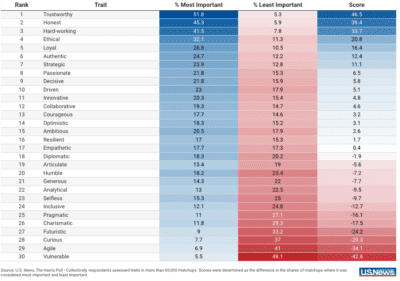By Fuad Ahmad
We have all read books, seen documentaries, and heard people describe the legendary leadership qualities of Lincoln, MLK, and Mandela. However, most of us will never have to deal with the overwhelming odds those and many other great leaders had to navigate. Yet, as executive leaders, we must often guide our teams through uncertain and turbulent situations. Great leaders are forged at these times, ideally inspiring confidence and trust in their leadership.
Leadership is a journey. Great executive leaders are not born but develop over time based on how they react and guide their organizations during challenges.
But being a strong leader is not easy. In fact, fifty-nine percent of employees agree with the statement, “I don’t see any leaders at my company today that I aspire to be.” This means we’re missing the mark. We know that executive leaders face unprecedented challenges today, from remote and hybrid workforces to retention issues and The Great Resignation. And this makes successful leadership even more critical.
When asked about which traits are most important to being a successful leader, a Harris Poll survey revealed that “trustworthy” was ranked highest. And Harvard Business Review shared that “all organizations [surveyed], regardless of performance level, ranked integrity and ethics as the most important leadership character element.

While we can’t necessarily quantify trust, integrity, or ethics, we can take actions that better position us for success. Over the course of my career, I’ve been fortunate to have the opportunity to observe some of these trustworthy leaders. I’ve noticed that they share common traits and behaviors I work hard to emulate throughout my own career. Here is a list of qualities they share in common that I hope will inspire executive leaders and educate those aspiring to be better
Be a strong communicator.
Communication is essential in most circumstances. However, it becomes the most critical element in uncertain and high-stress times. Under normal conditions, leaders typically communicate with their direct reports or a small cohort of key players within the organization. Leaders need to broaden and expand their circle during uncertain times.
Our teams need to hear from us more frequently. In the absence of information, people often fill in the blanks and tend to assume the worst. We must reach out early, often, and clearly–transparency and consistency are crucial.
Today’s workforce is intelligent and should be treated with respect. Great leaders proactively and deliberately make connections deep into the organization; they are precise, concise, and deliberate. Impactful communication requires forethought and planning.
To help, choose a forum that plays to your strengths. For example, are you better at communicating through public speaking or via written word? Does your team prefer large all-hands meetings or a series of fireside chats? Perhaps an AMA via Slack is the way to go. There are lots of options; choose what’s best for you.
[For tips on communicating with global teams, read Mastering Multinational Management: Expert Advice on International Spans of Control]
Have empathy.
Uncertainty means there are many nervous people on your team. Leaders want to create an environment of trust and understanding, and in uncertain times, they need to show empathy and compassion. Your goal is to create a network effect across the organization. If you are generous and sincere, your teammates will be more likely to follow suit.
One simple and often overlooked rule is to ask yourself: “How would I like to be treated in this situation?” The first answer is often the right one.
Maintain operational focus.
Keep the organization focused. It is easy for the team to be distracted at tumultuous times. Make sure daily activities remain on track.
Given a stressful and uncertain situation, it is easy to take your foot off the pedal and be lenient with accountability. You may feel you are allowing your team a breather, but the opposite is true. You want uncertainty to be just another business variable rather than the main event.
Model operational discipline.
At times, the team is on hold, waiting for an ambiguous situation to subside. This is a good time to tighten up on operational hygiene, like unfinished projects and activities that need tightening. Some leaders even view these downturns as opportunities to explore new markets, products, and acquisitions, decoupling fear with confidence and curiosity.
However, make sure not to create busy work as a distraction. These activities should directly improve the efficiency of the organization. Focus is the lifeblood of any efficient organization. Don’t let uncertainty be a distraction.
Display confidence and steadfastness.
How you act impacts how the organization perceives you. It truly is lonely at the top. Your actions, body language, and language indicate how you will be perceived. I don’t mean you need to downplay the situation or be overly optimistic. Acknowledge the situation, as necessary, but display confidence in overcoming it. If you have done a good job communicating, staying focused, demonstrating empathy, and continuing to be operationally focused and disciplined, this part will come naturally.
***
Being an executive leader is complex, and every leader will be flawed. However, we must keep working to maintain strong organizations that deliver returns without distraction from challenging times. Leadership is not just about guiding the ship; it inspires trust, fosters resilience, and keeps the team grounded with clear communication and empathy.
The greatest leaders recognize that while crises can be daunting, they are also opportunities to strengthen connections, sharpen focus, and lead with integrity. By embracing these principles, we can create resilient organizations capable of thriving in the face of adversity.


